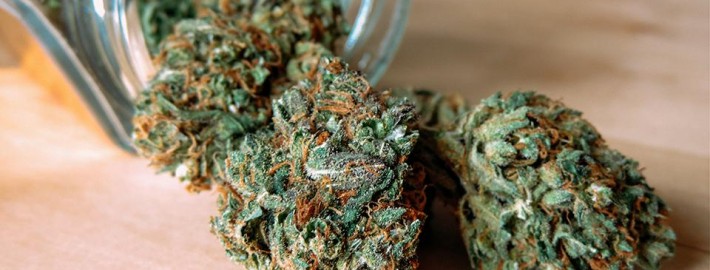Study Finds Patients Report Subjective Relief, Satisfaction from Different Strains of Medical Cannabis
In a study, the majority of patients prescribed medical cannabis reported that they experienced therapeutic relief from the plant, regardless of the strain they consumed.
Investigators at the Netherlands Institute of Mental Health and Addiction assessed patients’ therapeutic satisfaction with pharmaceutical-grade cannabis and compared the effects of several different strains of the marijuana plant. The study included 102 patients who consumed one of three differing types of cannabis dispensed by the Netherlands Office of Medicinal Cannabis. Investigators evaluated strains with varying levels of THC. Strains were either high in THC, with 19 percent, low in THC, with 12 percent, or contained relatively equal percentages of both THC and cannabidiol. Chronic pain was the most prevalent medical indication, followed by multiple sclerosis (MS).
According to data from the survey, patients experienced relatively equal satisfaction from cannabis across strains and consumed approximately equal doses of cannabis, regardless of the levels of THC or CBD. The type of cannabis used mostly influenced patients’ subjective feelings of anxiety, appetite, and/or feelings of dejection. Results showed that medicinal cannabis offers therapeutic relief for various conditions, many of which are characterized by chronic pain. Therapeutic satisfaction was independent of which strain of medicinal cannabis used, which is in agreement with several previous studies describing the therapeutic efficacy of cannabis products against pain, particularly neuropathic pain.
Investigators noted that the different ways of cannabis administration may have contributed to different subjective (adverse) effects. Most of the participants in the study inhaled the product, which generally produces a stronger high but also more dizziness, irritability, feelings of depression, stronger feelings of dependence, and withdrawal, among others, according to the study.
“In summary, the present results present a unique insight into a previously unstudied population of Dutch consumers of a pharmaceutically cultivated product, which has continuously raised both interest and controversy in the clinical community. It seems that this unique array of pharmaceutical cannabis products has a high therapeutic satisfactory profile within this group of patients. It largely confirms earlier findings that chronic pain and neuropathic pain are alleviated to the patient’s satisfaction. Interestingly, the pharmacologic composition of the different strains available affected the extent of different subjective (adverse) effects, with a high-THC/low-CBD product leading to more appetite stimulation but also to feelings of dejection and anxiety in comparison with low-THC/high-CBD product. The results of this study may aid medical practitioners and patients alike in selecting which strain of pharmaceutical cannabis could be most suited for their particular condition. It also contributes to a growing insight into the various effects of cannabinoids in general.”


